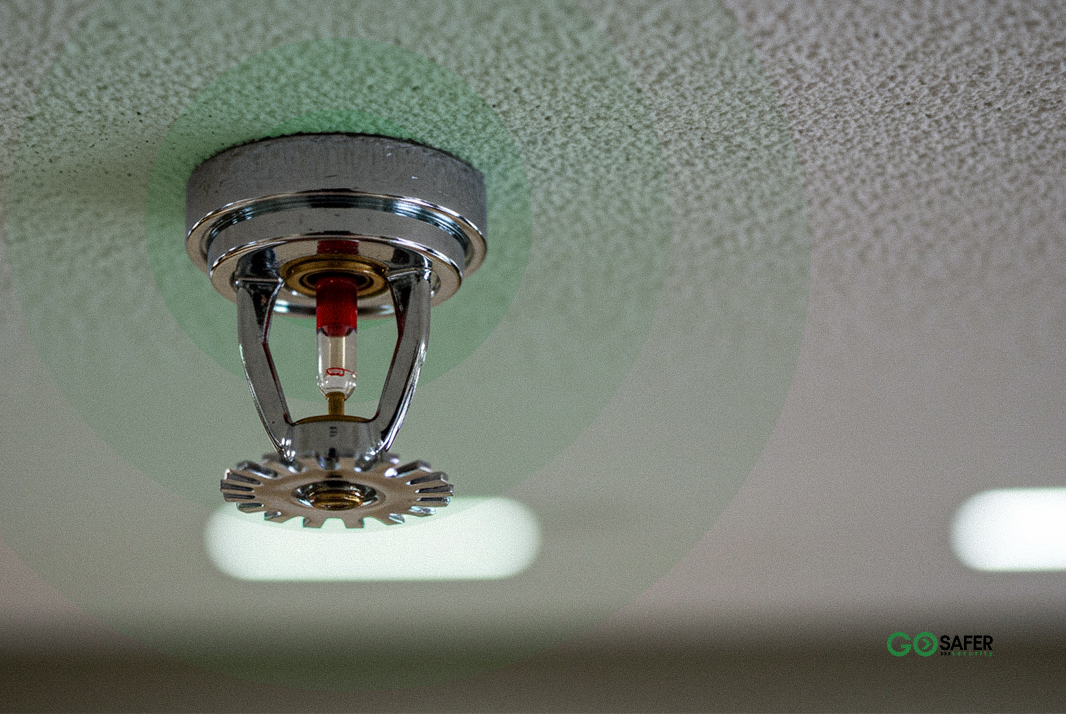When it comes to safeguarding your commercial property, nothing beats being prepared. Fires can devastate businesses in minutes, causing not only structural damage but also putting lives at risk. One of the most reliable tools in modern fire prevention is the fire sprinkler system. These systems act fast, controlling or extinguishing flames before firefighters even arrive.
In this blog post, we’re diving into why fire sprinkler systems are essential for commercial buildings, how they work, and what makes them a smart investment for your safety and bottom line.
Table of Contents
ToggleWhat Are Fire Sprinkler Systems?
At their core, fire sprinkler systems are automated water-based systems designed to detect and suppress fires in their early stages. When heat from a fire reaches a certain temperature (typically around 155°F), the system activates and releases water through sprinkler heads.
These systems include:
- A reliable water supply
- Network of pipes
- Sprinkler heads
- Heat-sensitive elements
Unlike what you might see in movies, they don’t all go off at once. Each sprinkler head activates individually—only in the area where heat is detected.
Why Every Commercial Property Needs a Fire Sprinkler System
Commercial spaces—whether it’s an office, warehouse, retail store, or restaurant—often contain flammable materials, electronics, and expensive infrastructure. Without a proper fire suppression system, a small flame can become a major catastrophe.
Statistics show that businesses with functioning fire sprinkler systems reduce fire damage by more than 60%. That’s a significant margin that could mean the difference between recovery and permanent closure.
Key Benefits of Fire Sprinkler Systems
Early Fire Detection and Suppression
Sprinklers activate as soon as they detect heat, buying you valuable time and minimizing risk.
Minimizes Property Damage
Since only specific sprinkler heads activate, there’s less water damage compared to full flooding or waiting for fire departments.
Saves Lives and Ensures Occupant Safety
By slowing or stopping fire spread, sprinklers ensure people can evacuate safely and quickly.
Reduces Insurance Premiums
Insurance providers often offer significant discounts for properties with well-maintained sprinkler systems.
Compliance With Fire Codes and Legal Standards
Many local laws require commercial fire sprinkler systems—especially in larger buildings or high-occupancy spaces.
Types of Fire Sprinkler Systems for Commercial Buildings
Wet Pipe Systems
These are the most common and cost-effective. Pipes are constantly filled with water, ready to release upon activation.
Dry Pipe Systems
Ideal for colder climates. Pipes are filled with pressurized air or nitrogen that releases water only when needed.
Deluge Systems
Used in high-risk areas like chemical plants, where all sprinklers go off simultaneously upon activation.
Pre-Action Systems
A hybrid of wet and dry systems—ideal for places like data centers where false alarms could be costly.
Fire Sprinkler System Installation Process
Installing a sprinkler system isn’t a DIY job. It requires a tailored design, appropriate zoning, pipe routing, and local code compliance. The best approach is to work with licensed professionals, such as those offering fire sprinkler solutions in Maryland.
Inspection and Maintenance of Fire Sprinkler Systems
Routine inspections are crucial. They ensure your system works when it matters most. Learn more about the frequency of inspections to keep your property compliant and safe.
Maintenance checks often include:
- Valve checks
- Water flow tests
- Sprinkler head inspections
- Alarm signal verifications
Fire Sprinklers as Part of an Integrated Fire Safety Strategy
Fire sprinklers are powerful, but they’re best when combined with fire alarms, exit strategies, and life safety systems. Together, they form a seamless protection network.
Choosing the Right Provider for Installation
Not all installers are created equal. When choosing a provider:
- Look for certifications
- Check reviews
- Ask about maintenance packages
- Ensure local code compliance
We recommend trusted experts like Go Safer Security, who offer top-notch design, installation, and maintenance services.
Cost Considerations
While upfront costs vary depending on building size and system type, the ROI is undeniable. Consider the savings from reduced property damage, potential lawsuits, and insurance discounts.
Myths About Fire Sprinkler Systems
- Myth: All sprinklers go off at once.
Fact: Only those near the fire activate. - Myth: Sprinklers cause more damage than fire.
Fact: They cause far less damage than unchecked fires. - Myth: They’re only needed in large buildings.
Fact: Fires don’t care about size—every building benefits.
Environmental and Structural Impact
Modern systems are designed to be eco-friendly, using water efficiently. They also preserve more of the structure compared to total fire loss.
Legal Obligations and Insurance Incentives
Failure to install a fire suppression system where required can result in hefty fines—or worse, loss of life and liability lawsuits. Always verify your local codes and work with your insurer to get premium discounts.
Conclusion
Fire sprinkler systems aren’t just “nice to have”—they’re essential for any commercial property. They save lives, protect investments, and ensure compliance. Whether you’re outfitting a new building or upgrading an older one, make it a priority to integrate a modern fire sprinkler system into your fire safety plan.







